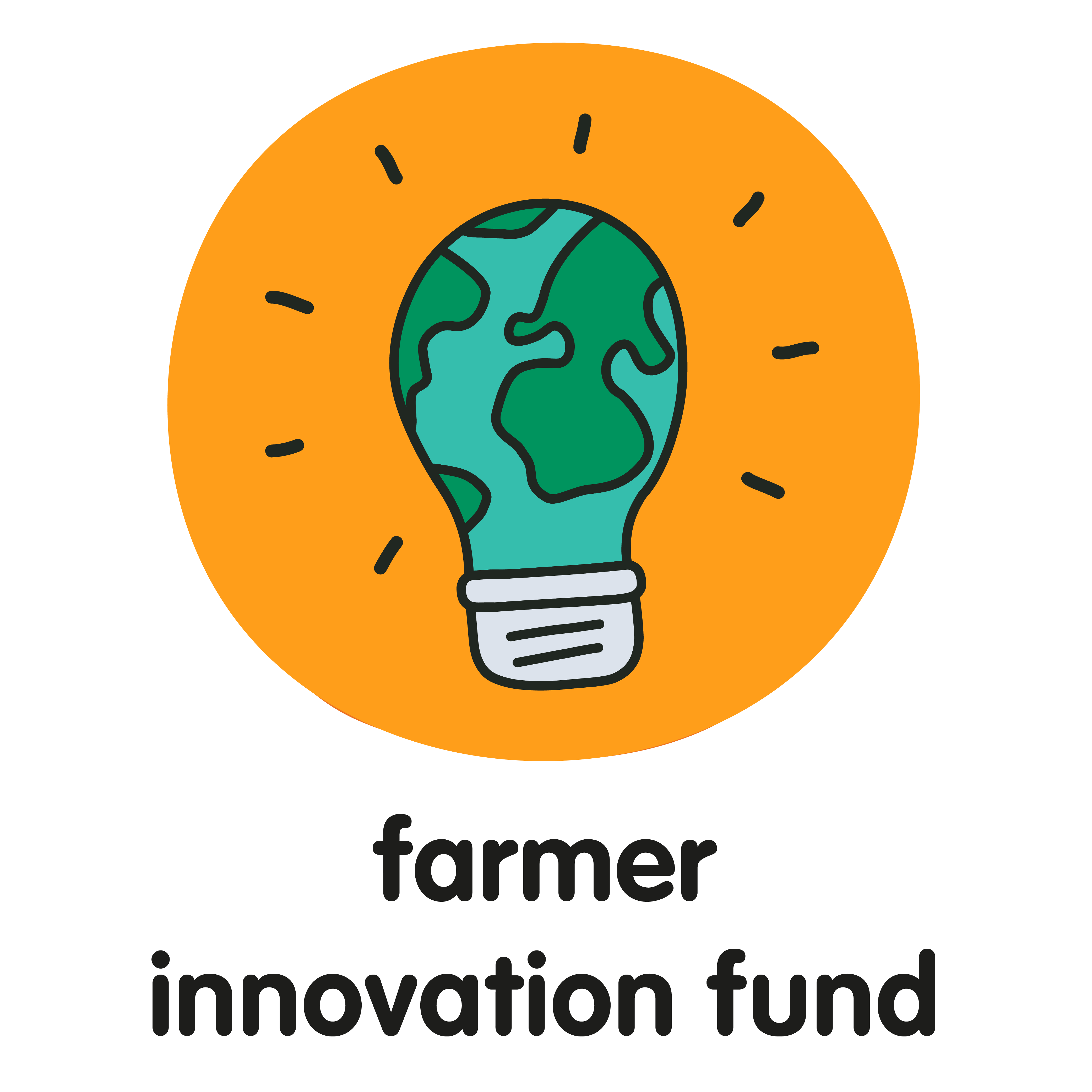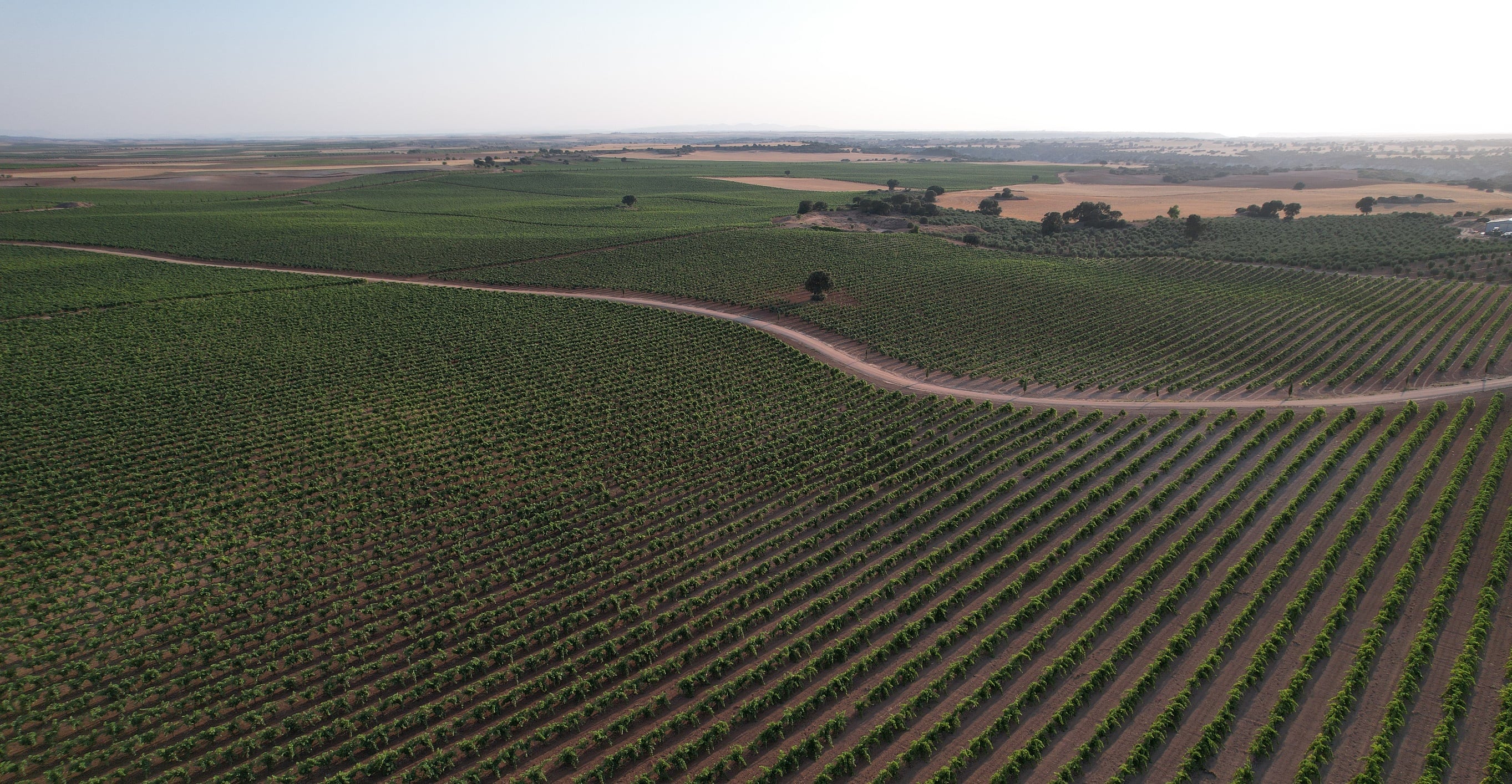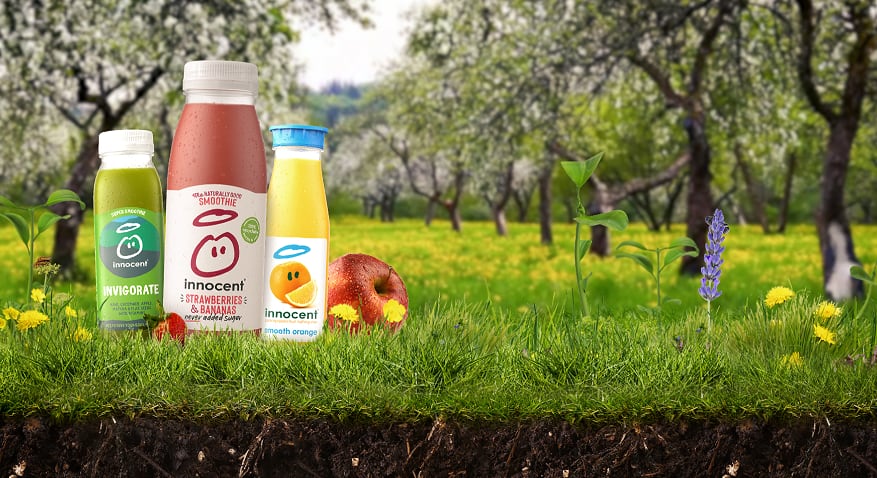Innocent – founded by three friends in the UK in 1999 and bought by Coca-Cola in 2013 – has always championed sustainability as an integral part of its business.
Ingredients make up the biggest chunk of innocent’s carbon footprint: making up some 50% of its total emissions. But they can be the trickiest to address: because they’re not directly controlled by innocent and come from fruit and vegetable suppliers around the globe.
That means investing in sustainable farming practices will be key to achieving a 50% reduction in scope 3 emissions by 2030.
- Scope 1 emissions— emissions made by the company directly
- Scope 2 emissions — emissions made by the company indirectly (for example, buying electricity or energy from a supplier)
- Scope 3 emissions — all the emissions the company is indirectly responsible for across the value chain: commonly buying products from suppliers.
The biggest emissions: apple and oranges
The Farmer Innovation Fund was launched in 2021, aimed at addressing the lack of funding options available to commercial farmers, by making funding available to cover losses associated with trialing new innovative farming practices. That could include practices that improve soil health, increase biodiversity, or protect water resources.
The fund is there to tackle innocent’s own carbon footprint: and to that end, it is focusing the funding on ingredients which account for the biggest emissions – namely apples and oranges, which are high emitters simply because these form the base of many of innocent's drinks.
“There are many variables and nuances when looking at the farming transition, from geography to type of fruit, from soil conditions to expected rainfall levels,” said Karina O’Gorman, head of Force For Good at innocent drinks.
“We feel it’s important we narrow down the Farmer Innovation Fund criteria to have the biggest impact on our supply chain emissions and the wider transition to low carbon farming.
“With this in mind, we will aim to prioritise funding innocent suppliers who provide us with our priority fruits such as apples, oranges, pineapples, and bananas as this is where our highest volumes and emissions lie.”

innocent wants to support projects that
- Protect and improves soil health, biodiversity, climate, and water resources
- Support farming business development
- Are rooted in diverse, local knowledge
- Conserve and recycle energy and material flows
- Focus on what an ecosystem can support while following the principles of regenerative agriculture.
"Our Farmer Innovation Fund aims to help farmers improve biodiversity and livelihoods while supporting the transition to low-carbon farming," said O'Gorman. "These issues are all interrelated and by providing funding for projects across these areas we hope to support our suppliers in securing the future of fruit & veg for the long term."
However, innocent’s interest is not limited to these big volume items. “We also believe in the potential for innovative practices to be trialled and implemented by non-priority fruit suppliers so we will still be open to funding these,” adds O’Gorman.
High impact projects include innocent’s Beacon project, which looks to increase natural pollinators. Some 86% of the company’s ingredients rely on pollinators such as bees and butterflies, but their numbers are falling fast.
“For the last few years through our Beacon project, we have been engaged in a research project looking at increasing natural pollinators to improve soil health and yield whilst reducing carbon emissions through lower use of pesticides,” explained O’Gorman. “This research is starting to show results and is a springboard for us to look at what more we can test and learn and share results with a wider network to try and transition to more sustainable supply chains for our key ingredients.”
Trials – both on farm and at a commercial scale – are essential to progress, highlights O’Gorman.
“On-farm trials involve testing, learning and sharing ideas which build a blueprint for how lower CO2e farming can be possible across a range of contexts. Some examples of this include farmers installing solar panels on farms, experimenting with intercropping, no-till farming practices, precision farming equipment, and introducing wildflowers onto their farms. The funding can also act as a cornerstone, catalyst or source of consultancy that helps the farmer receive additional investment such as government R&D funding.
“Commercial scale farm trials lead by example and model how lower CO2e farms can run and provide key ingredients for use in innocent’s drinks. The Farmer Innovation Fund could help farmers de-risk the regenerative transition on their farms by contributing to alternative crop insurance products or helping farmers access preferential ‘green’ business loan rates.”
- Frutilight in Costa Rica used the funding to support three carbon-cutting projects: the switch to a specially made fertiliser that uses nano-technology to give their soil the exact nutrients it needs; embarking on growing bamboo in the unused areas of the farm (improving quality of soil and removing more carbon in the atmosphere than the average tree due to its fast growth rates); and then using this bamboo to make their own pallets for shipping pineapple juice
- Agranas Manchegas in Spain (below) has supplied grape juice to innocent for years. The Farmer Innovation Fund helped it buy solar panels to power their irrigation system; equipment (like a monitoring station) and a multispectral and spraying drone duo. Being able to buy all the equipment at the same time means it can work together as an eco-system.

Helping make the decisions as to the best projects to support is an external advisory board.
“This board provides current knowledge, critical thinking and analysis on how best the Farmer Innovation Fund (FIF) can help farmers transition to regenerative agricultural practices,” explained O’Gorman. “The board members will also analyse the grants shortlist put forward by the internal Steering Committee and ensure they are in line with the objectives of the FIF. They will make recommendations to the Steering Committee on suitable applications to be approved for funding and on any improvements to increase efficiency and impact.”
The advisory board consists of Dominik Klauser, Regenerative Agriculture Director at SAI Platform; Jyoti Fernandes, a Dorset smallholder farmer and campaigner and head of policy at the Landworkers Alliance; Martin Lines, farmer and CEO of the Nature Friendly Farming Network; and Oliver Williams, Corporate philanthropy Senior Manager at Virgin Unite.
Thinking outside the box
Creating meaningful sustainability initiatives is a complex task – and innocent has been learning all the facets of the subject over the last three years.
“The Farmer Innovation Fund has been a continuous learning process for us since we first launched in 2021 and we realised that there is no “one size fits all” of doing this,” said O’Gorman. “That’s why over the last 18 months, we’ve been taking part in a series of workshops with experts on regenerative agriculture, climate justice, and climate resilient supply chains. We’ve taken the learnings from these and incorporated them into our enhanced fund which aims to inspire and support the industry in transitioning to better practices whilst creating a food system that is just and fair.”
However, her biggest takeaway is that those working to improve sustainability need to think big, think differently, and think creatively.
“We’ve learnt that whilst there has been some progress in sustainability standards in agriculture and incentives for climate friendly farming practices in recent years, they are still insufficient for us to avert the climate and ecological crises,” she said.
“We need to create a new reality where farming is positive for people and the planet. We believe the role of our enhanced Farmer Innovation Fund should be to create a food system that is just and resilient, without it having intensive agriculture at its core. We need to build some optimism that things can be better, and we need to instigate, trail, and de-risk the work that goes into creating this new reality.
“Our long-term vision is to create a model business roadmap to zero carbon sourcing. This will need cross-sector collaboration including investing at farm level, working with peers in the sector, and at a policy level. For the transition to regenerative agriculture to succeed, we need to take a whole-industry approach, supported by new legal and business frameworks.”
B Corp
Innocent became B Corp back in 2018 (recertified with a score of 105.2 in 2021). Its goals is to reduce its carbon footprint per bottle by 50% by 2030 from a 2019 baseline as well as reducing its Scope 1 and 2 emissions to zero in the same timeframe.
“To achieve this, we undertook a comprehensive review of business operations across every stage, from suppliers to end consumers, to identify the most significant things we could do to have the biggest impact on the planet,” said O’Gorman.
After ingredients, processing and transportation make up the next biggest contributors to innocent’s carbon footprint.
To address these, it always transports fruit and vegetables by boat, rather than plane. Other lower carbon transport mechanisms include trains and barges on some routes.
The company has also decided to locate its state-of-the-art carbon neutral production site – dubbed ‘The Blender’ – in Rotterdam: meaning that fruit and veg arriving at the Port of Rotterdam (Europe’s largest) have minimum onwards transportation.

